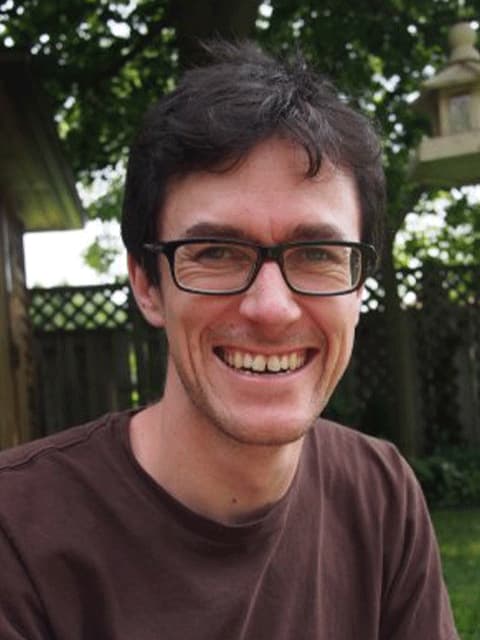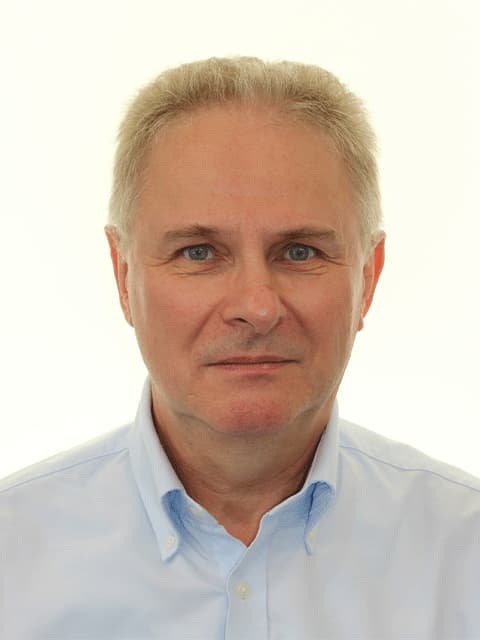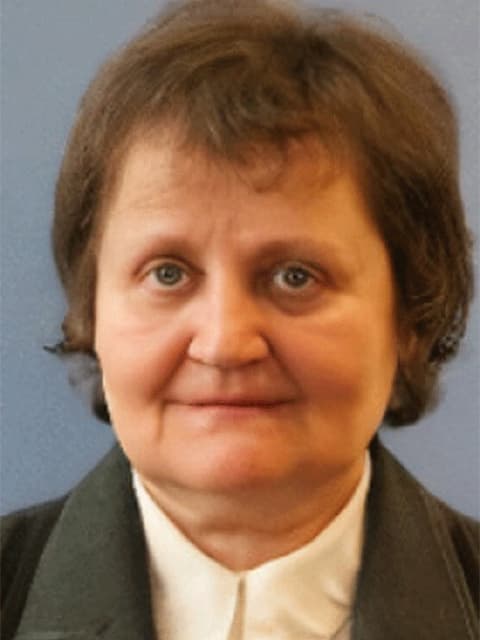Invited speakers
DCFS 2025 features a distinguished group of invited speakers presenting research on topics such as formal languages, reversible computing, and natural computing. Their talks will offer valuable insights and spark discussions throughout the conference.

Giuseppa Castiglione
University of Palermo, Italy
Giuseppa is an Assistant Professor in the Department of Mathematics and Computer Science at the University of Palermo, Italy where she also earned her Ph.D. in Computer Science in 2006.
Her research interests include automata theory, formal languages, and combinatorics on words. She has contributed to the study of polyominoes, algorithmic aspects of automata, and structural properties of formal languages.
She is a member of the Executive Board of the Italian Chapter of the European Association for Theoretical Computer Science (EATCS) and serves as a co-organizer of the seminar series ‘Primavera dell’Informatica Teorica’, which promotes the dissemination and discussion of recent advances in theoretical computer science.
Abstract Wheeler Automata in Formal Language Theory
Giuseppa Castiglione
In 2017, the concept of Wheeler graphs was introduced. In these graphs, a total order on the alphabet induces an order among the nodes, which is then propagated forward by traversing pairs of edges with the same label.
Automata whose transition graphs are Wheeler graphs are known as Wheeler automata, where the states are ordered according to the alphabet order. These automata support efficient data structures for path queries and pattern matching on their languages; furthermore, they enable innovative compression techniques.
The regular languages accepted by Wheeler automata are called Wheeler languages. These form a subclass of star-free languages and exhibit several interesting properties from a language-theoretic perspective.
In this talk, we will present some of the main known properties and theoretical challenges on Wheeler automata and Wheeler languages highlighting their structural features and theoretical significance. We will also present our latest results on the closure properties of Wheeler languages, with a particular focus on closure under complementation.

Ian McQuillan
University of Saskatchewan, Canada
Ian McQuillan is a Professor of Computer Science at the University of Saskatchewan in Canada.
His research focuses on formal language and automata theory, computational complexity, computational biology, and natural computing.
He finished his Ph.D. under the supervision of Professor Helmut Jürgensen in 2005 at Western University in Canada. Within automata theory, he has specialized in unconventional models of computation and grammar models with restricted power, while studying decision problems on them. His research is supported by the Natural Sciences and Engineering Research Council of Canada.
Abstract Inductive Inference of Lindenmayer Systems: Computational and Descriptional Complexity
Ian McQuillan
Grammatical inference involves the learning of formal grammars from data, and inductive inference involves the learning of grammars from positive examples of words that are generated.
In this talk, we will present inductive inference of different types of Lindenmayer systems (L-systems). L-systems are particularly useful for creating simulations of plants and other processes with inherent parallelism. We mostly analyze the problem of being given one or more sequences of strings initially generated by an (unknown) L-system and attempting to infer an L-system that indeed can initially generate those sequences.
This includes different restrictions on L-systems such as deterministic, nondeterministic, tabled, non-tabled, erasing, non-erasing, context-free, context-sensitive, or parametric. We will survey older results on decidability of inference, and newer results on complexity.
Computational complexity will go hand-in-hand with descriptional complexity as we will strive to inductively infer L-systems with the smallest number of rewriting rules and/or the smallest number of tables. Computational complexity will also vary depending upon whether certain parameters of the L-system are taken to be fixed or not, leading to fixed-parameter tractable algorithms.
We also discuss more experimental results with implementations of inductive inference. Finally, we describe preliminary work on learning and matching L-systems to images.
There are many interesting open problems and future directions that remain in this area, which will be discussed.

Irek Ulidowski
University of Leicester, UK
Irek Ulidowski is an Associate Professor at the School of Computing and Mathematical Sciences at University of Leicester.
Ulidowski is one of the leading scientists in the field of reversible computation. He established a workshop on Reversible Computation in 2009 with help of an EPSRC grant. The workshop grew in the subsequent years and became the Reversible Computation Conference in 2012. This year there was the 17th edition of the conference.
He received a BSc degree in Mathematics with Computer Science from Queen Mary, University of London, in 1987. In 1988 he was awarded MSc in the Foundations of Advanced Information Technology at the Department of Computing of Imperial College London. In 1994 he received a PhD degree at Imperial College London for a thesis “Local Testing and Implementable Concurrent Processes”.
He was appointed to a Lectureship in the School of Computing, University of North London in 1992. From 1994 to 1997, he held a position of Associate Professor at the Research Institute for Mathematical Sciences (RIMS) of Kyoto University. In 1998 he joined the Department of Mathematics and Computer Science at the University of Leicester.
From 2015 to 2019 Ulidowski led Horizon 2020 COST Action on “Reversible computation: extending horizons of computing”. The Action involved over 120 scientists from 28 countries. Currently, he is a partner of Horizon Europe MSCA Doctoral Network E-CoRe on “Energy-efficient Computing via Reversibility”.
Abstract Can We Efficiently Compute Concurrency and Causality Relations in the Reversible Setting?
Irek Ulidowski
Reversible computing has applications in debugging, robotics, simulation and biochemical modelling. Many such applications involve concurrency, which requires causal-consistent reversibility, where one can undo any action provided that its consequences, if any, are undone first.
There is an axiomatic theory for causal-consistent reversible computation, allowing one to prove many fundamental properties from a small set of easily verifiable axioms. One can study concurrency, causal dependence and conflict relations within the theory, however, only qualitatively.
In this ongoing work we complement the theory with a quantitative analysis, describing the computational cost of computing the relevant relations. We follow an axiomatic approach, so that it matches the generality of the qualitative part. We apply this new approach to CCSK with guarded recursion and reversible Erlang.
Honorary talk

Erzsébet Csuhaj-Varjú
Eötvös Loránd University, Hungary.
Erzsébet Csuhaj-Varjú is a Professor Emeritus at the Eötvös Loránd University in Hungary.
Prof. Csuhaj-Varjú initiated research directions in the theory and applications of formal languages and automata, unconventional computation, and distributed systems, and played a decisive role in the development of the theory of grammar systems.
She graduated with a master’s degree in mathematics from the Kossuth Lajos University in Debrecen in 1977, received CSc (equivalent to PhD) in 1993, and became a Doctor of the Hungarian Academy of Sciences in 2003. From 1979 to 2011, she worked as a researcher and a head of a research group at the Computer and Automation Research Institute of the Hungarian Academy of Sciences. In 2008, she was appointed full professor at the Faculty of Informatics at Eötvös Loránd University, where she held various positions from 2012 to 2023, including head of department and head of the Doctoral School of Informatics.
A Festschrift volume dedicated to Erzsébet Csuhaj-Varjú was presented during the conference and it is now available.
Abstract Descriptional Complexity in Natural Computing: the Case of P Systems
Erzsébet Csuhaj-Varjú
The technological and societal challenges of our time are increasingly demanding computational models and methods that surpass the limitations of Turing machines and are novel both in their architecture and operation.
Natural computing attempts to address this challenge, among other things, by drawing ideas from nature to develop computational models and providing novel computational tools to describe natural processes.
In this talk, we discuss the descriptional complexity of P systems, also known as membrane systems, and compare it with the descriptional complexity of some classical computational models in formal language theory and automata theory. We also attempt to formulate conditions for an appropriate definition of the notions and metrics of descriptional complexity for describing similar natural systems and processes.
P systems, also known as membrane systems, are well-known parallel and distributed computational models that mimic the structure and function of living cells, tissues, and higher organizations such as groups of bacteria. Over the years, the theory and applications of membrane systems have become a recognized and vibrant scientific field, the field of membrane computing.